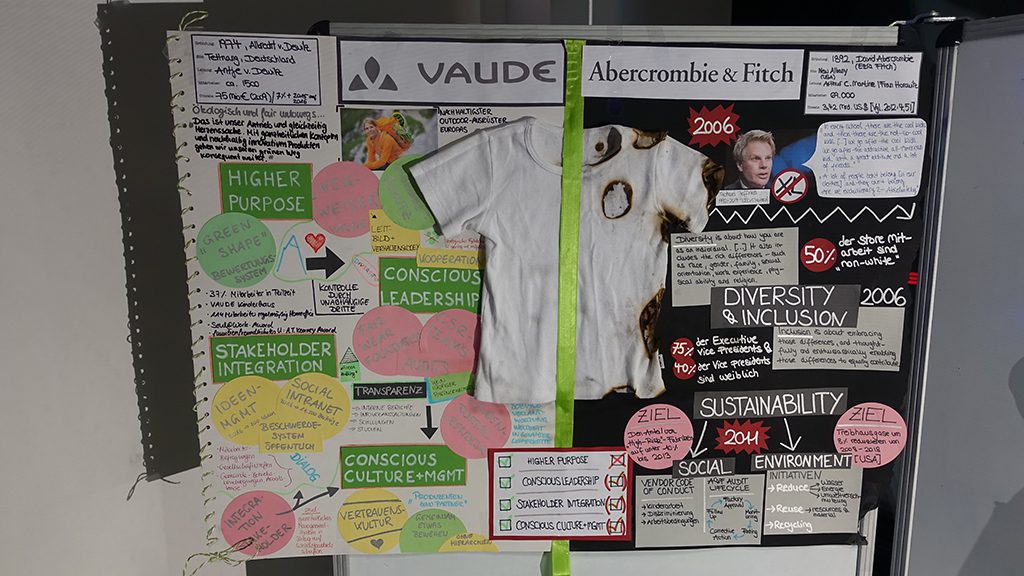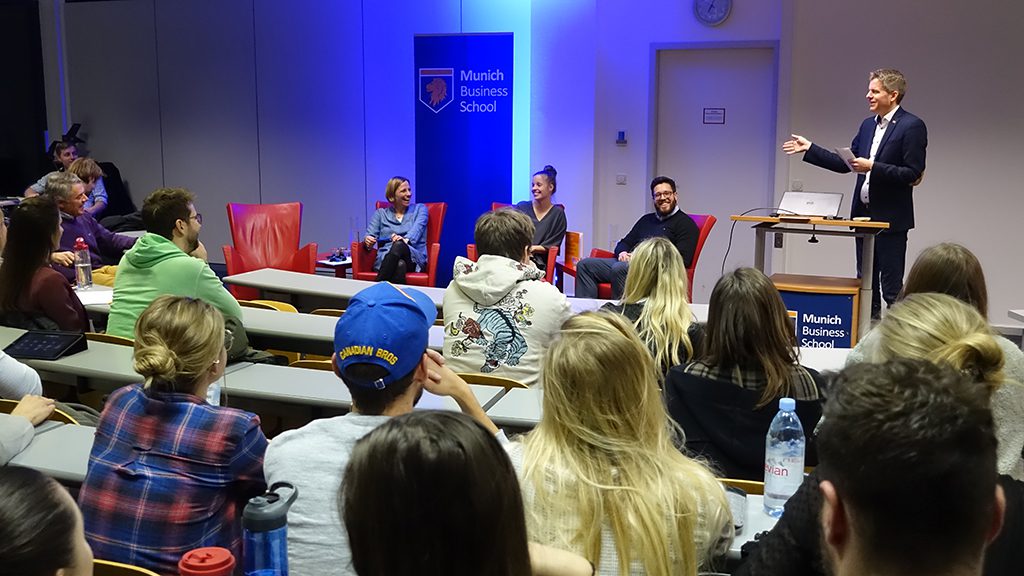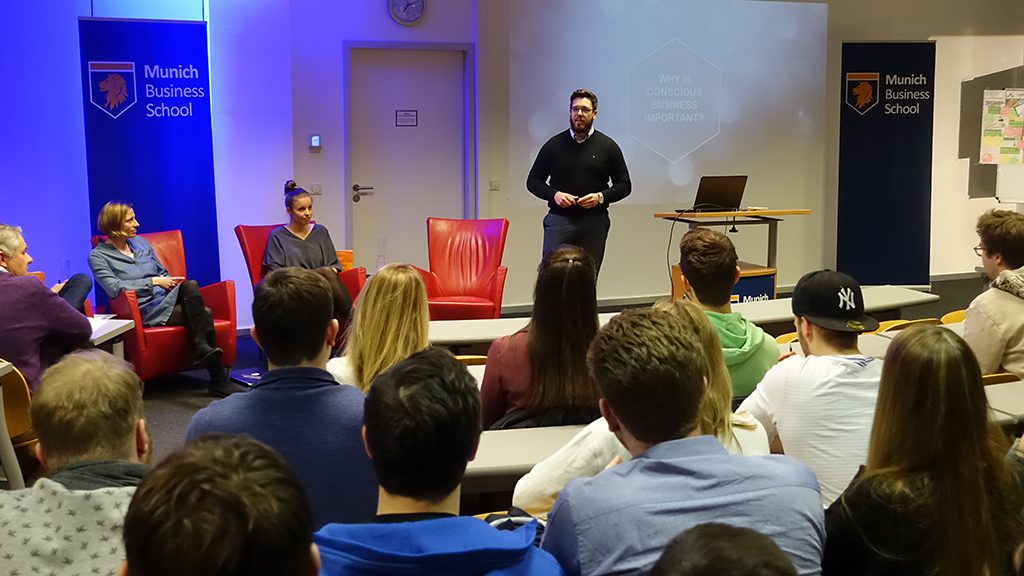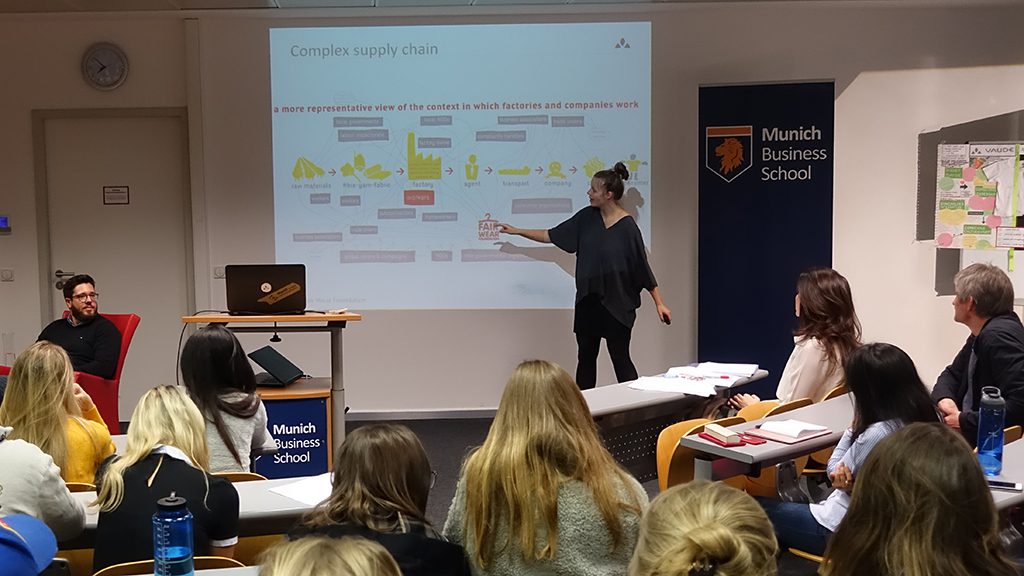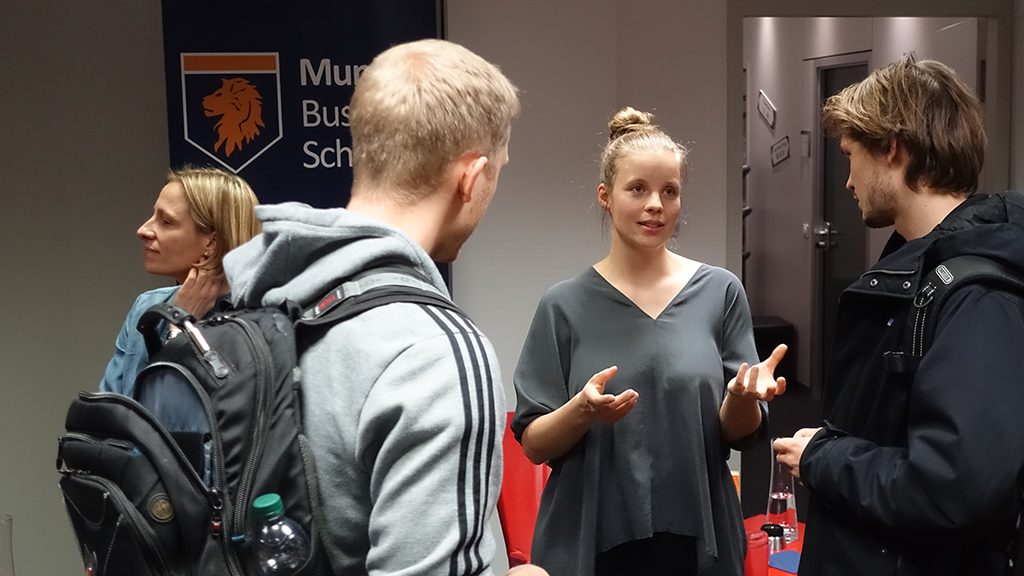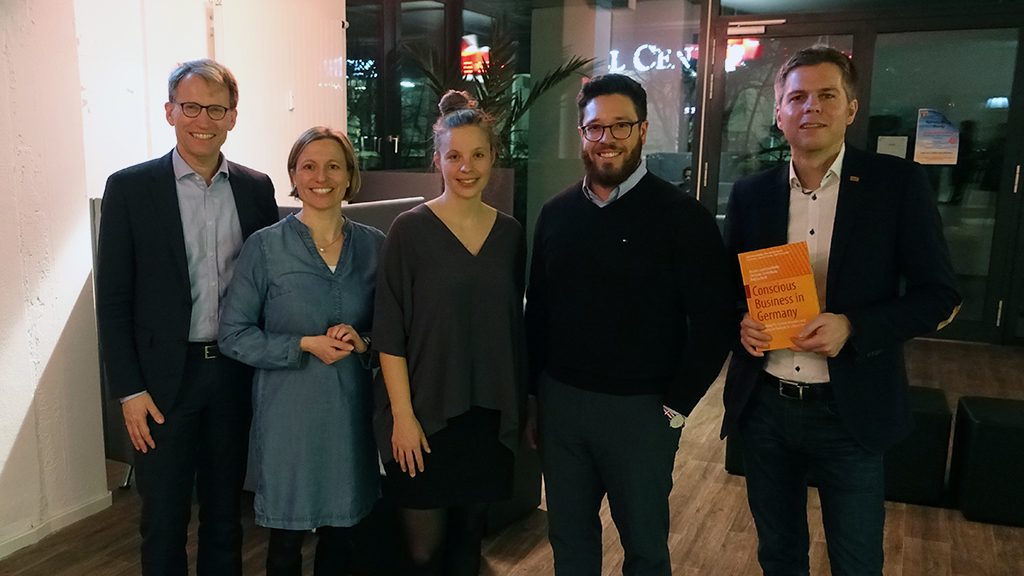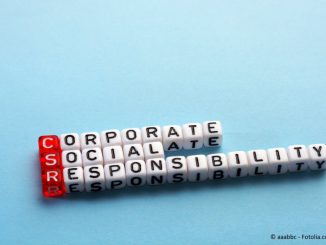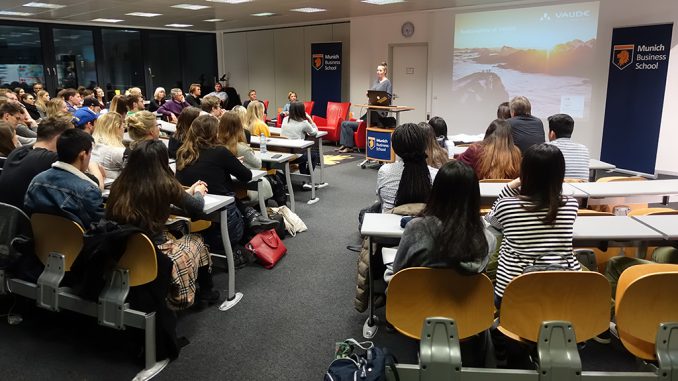
Past Thursday, MBS was the venue for another exciting event. On the occasion of the “Conscious Business in Germany” book publication, written by MBS Master International Business graduate Nicolas Stahlhofer and MBS Professors Dr. Christian Schmidkonz and Dr. Patricia Kraft, MBS was happy to welcome Lisa Fiedler of outdoor supplier VAUDE – one of Germany’s premier conscious businesses, who shared lots of inspiring insights into sustainability and consciousness at VAUDE with the MBS students.
Prof. Dr. Christian Schmidkonz, the organizer of the Conscious Business course at MBS, opened the event in the well-filled MBS Auditorium before handing over to Nicolas Stahlhofer, who gave an overview of the conscious business idea, related concepts as well as national and international example companies. In addition, he provided some insights into how he himself got attracted by the topic and eventually ended up as a book author on conscious business.
Then, Prof. Dr. Patricia Kraft took the stage to introduce the main speaker of the event, Lisa Fiedler, Corporate Development and Personal Advisor to the CEO at VAUDE. The family-owned company is one of four conscious businesses examined in a case study as part of the “Conscious Business in Germany” reference book.
Conscious and Sustainability Projects at VAUDE
Lisa started her presentation on “Conscious and Sustainability Projects at VAUDE” by illustrating the beginning of the “conscious company” VAUDE in 2009, when the daughter of the founder and today’s CEO, Antje von Dewitz, took over the management of the family business and decided to transform it into a conscious business.
Since then, the company has taken countless efforts across all areas to put the conscious businss theory into practice, including the review of manufacturing processes, technology application, products and product design, materials, and many more. This strong willingness to become more conscious and sustainable while at the same time maintaining economic success has – as a positive side effect – also led to the company being “forced” to be innovative, i.e., when developing new materials. “Sustainability creates innovation,” as Lisa put it.
VAUDE didn’t stop here and has also engaged in taking action beyond the own company’s borders, training its providers, forging intra-industry alliances (with competitors such as Jack Wolfskin and Salewa) to increase the working conditions of seamstresses in Myanmar, committing to codices such as the UN Sustainable Development Goals as well as initiatives such as the Fair Wear Foundation, and persistently engaging on the political level.
In its fight for the longevity of its products, VAUDE has also established a repair service, developed do-it-yourself repair manuals, is running repair cafes and even offers an eBay platform for trading pre-owned VAUDE apparel and equipment; the latest efforts feature “upcycling”, i.e. manufacturing new products from leftovers.
To round out the overall picture, the company puts high emphasis on topics such as women in leadership (40 % of leadership positions are filled by females), diversity (e.g., the company offers jobs to refugees), healthy living (e.g., recreation courses for employees, healthy and regional food in the canteen) and the like.
All information on VAUDE’s sustainable and conscious approach is to be found in the VAUDE CSR Report – and in the “Conscious Business in Germany. Assessing the Current Situation and Creating an Outlook for a New Paradigm” reference book, which is available on Amazon and in the Springer web shop as hardcover and as ebook.

